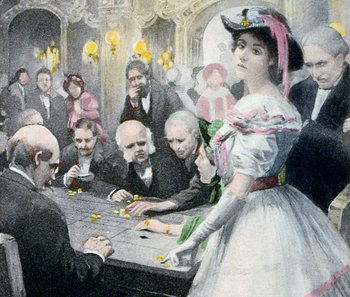
Customer Needs
A salesperson knows that a customer needs their product to solve a problem and that there are no feasible alternatives on the market. As such, the customer's BATNA is to live with the problem. In this situation the salesperson may offer a small discount but not be pushed any further as they have a strong position.Sales Targets
A customer can sense that a salesperson hasn't hit their sales target and it is almost the end of the financial year. As such, the salesperson's most likely BATNA is to miss their sales quota. As such, the customer is confident to push for heavy discounts and is willing to close the deal quickly so that the saleperson can achieve their sales target.Customer Preferences
A salesperson gets the sense that a customer strongly prefers their product to alternatives in the market. The customer's BATNA is purchasing their second preference. The salesperson is therefore confident that a minor discount will be enough to close the deal.Talent
An employer is aware that a particular candidate is in high demand and likely has other offers to consider. The employer is also aware that the candidate's knowledge is critical to their strategy. Therefore, the candidate has many good alternatives to a deal and the employer will risk strategy failure if a deal isn't reached. In this situation it is in the candidate's interests to push hard and the Employer's interests to be accommodating.Economy
An employer is aware that the economy is in recession and jobs are difficult to find. As such, they have a strong hand in negotiation as candidates may have no other offers.Supply
A manufacturer of high capacity batteries is in short supply due to industry conditions and extremely high demand. Each customer they meet is highly motivated to close a deal as their alternative is to cut back production of their products. The manufacture has many alternatives with each negotiation as customers are eager to buy. As such, they push each customer to offer the highest price that is possible given the economics of their production.Bluffing
A business customer who is purchasing software has decided that a particular product is far superior to all alternatives. In other words, their BATNA is to buy an inferior product and they are therefore highly motivated to buy. However, they attempt to bluff and downplay their motivation with a bogey.| Overview: BATNA | ||
Type | ||
Definition | The alternative that each party faces if a particular negotiation fails to reach a deal. | |
History | First coined by Roger Fisher and William Ury in their 1981 book, Getting to Yes: Negotiating Without Giving In | |
Related Concepts | ||



























